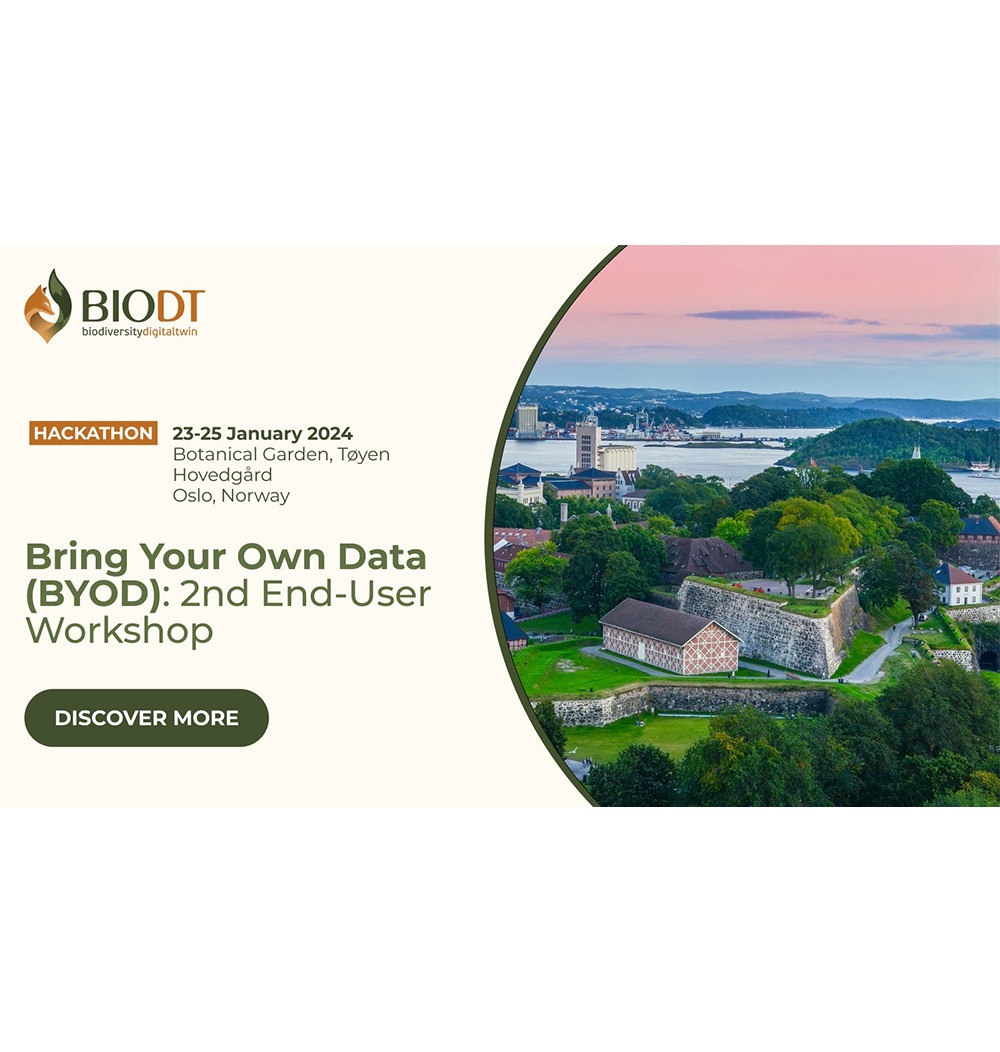
Oslo, Norway, 23-25 January 2024
Join the BioDT hackathon to learn how digital twinning can revolutionize global agriculture. Discover how crop wild relatives hold untapped genetic resources to achieve higher yields, better nutrition, and resilience to changing environments. Learn how to identify, manage, and conserve wild crop relatives in a three-day workshop, contribute to a comprehensive wild crop relative characterization toolbox, and be a part of sustainable agriculture.
During the first session, you’ll delve into developing a comprehensive toolbox that enables the predictive characterization of plant genetic resources. Through newly developed and pre-existing modelling techniques and data integration from diverse sources, we will explore how to identify and leverage the genetic potential of crop wild relatives.
The second session will focus on novel data products of digital twinning exercises to establish the overlap between pre-established protected areas and verified distributions of crop wild relatives needing conservation. This tool will identify and propose prioritised genetic reserves for conservation and genetic monitoring of designated CWR conservation populations.
For more information on the BioDT hackathon, please visit this page.